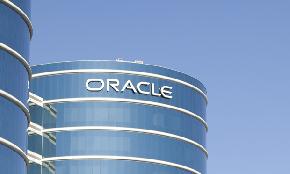DALLAS-With the 2007 forecast season rolling out, leading economists are making it clear that the signs are in place for a much slower growth rate in Texas. It’s not been labeled a recession, but Dallas and Houston economies are going to feel the pinch.
In Dallas, Dr. Ray Perryman was yesterday’s keynote speaker for the 23rd consecutive time at the annual Greater Dallas Chamber breakfast. In Houston, Dr. Barton Smith unveiled his forecast at the University of Houston’s bi-annual symposium. Based on recent studies, the general consensus is Central Texas, Austin specifically, most likely will be the state’s shining star in 2007.
The culprit for the slowdown in Dallas and Houston is the slowing housing market, Perryman and Smith concur. Because it’s Texas, energy factors into the economic previews for reasons other than rising costs. The two metros’ economic growth rates might slow to an estimated 2% or 2.5% from the 3.5% to 4%, but neither city will grind to a halt.
“I don’t see any forces in motion that are likely to lead to a recession,” Perryman told the roomful of local business leaders and market watchers at the event, held in the Renaissance Hotel at 2222 Stemmons Freeway. With the US markets softening, Texas’ investment into building diverse and sustainable economic engines “will pay some real dividends for us,” he says. “Our momentum is well above the rest of the country. We have done a lot of things right. Even the down side of this cycle is going to be one of the best in four or five years.”
From Smith’s podium: “While the likelihood of a national recession is remote, the housing market correction is far from over.” Data is too inconsistent to predict the severity of the correction or its shelf life, driving a division in economic circles over whether the storm clouds will end in a recession or softening much like 1995-96, he reports.
In Dallas, Perryman says suburban office and retail markets will underwrite gains in the commercial real estate sector. “Commercial looks pretty good,” he tells GlobeSt.com. “We still will see some momentum on suburban office and suburban retail.”
Perryman also doesn’t expect any commercial slowdown due to the controversial margin tax. “We looked at it carefully,” says the founder of the Waco, TX-based Perryman Group, who was part of the state’s study panel. “It’s more efficient than the system we have. There are winners and losers. I’m a loser because I’m in the service business.” Capital-intensive companies, though, will fare alright in the transition from a franchise tax to a margin tax.
Perryman’s research shows more than 37% of the state’s jobs are in the service business. He estimates that roughly 935,000 jobs will be created in the next five years, of which more than half will be in services’ industries.
“In Houston, the economic slowdown, though present, is much less obvious,” the university’s economics professor told yesterday’s 1,100 registrants for the annual symposium, held in the Hilton Americas-Houston at 1600 Lamar St. “Two threats cloud next year’s picture for Houston.” First, the city most likely won’t “receive as strong a stimulus from energy in 2007 as in 2005 and 2006,” he explains.
Secondly, region’s hot housing market is destined to cool. “We are simply building homes at a pace that is faster that can be absorbed, given the rate of growth of population in the region,” says Smith, who’s also director of the University of Houston’s Institute for Regional Forecasting. “This doesn’t mean that new home construction will collapse in Houston as it has in some parts of the country, merely that the current pace can’t be sustained. Thus, growth in construction employment is also likely to come to an end for a while as well.”
In Dallas, there have been 38 corporate relocations to date this year, creating 33,000 jobs. The stepped-up focus on globalization has put Texas in third position by foreign-owned companies looking for a US location. California leads the pack, with 547,000 “in-sourced” jobs and New York’s 377,000 is second, according to Perryman’s stats. The Texas total is 341,200 jobs. Rounding out the Top Five is Florida and Illinois with 238,400 and 235,600 jobs, respectively.
But, the future isn’t without challenge. Perryman says immigration and infrastructure issues are chief on the watch list. “We have 11 million people undocumented in the US. We do not have 11 million unemployed people,” he says. “If we start to try to replace that workforce, we don’t have a way to do it.”
On the infrastructure issue, Perryman backs the Trans-Texas Corridor. His research shows the state is $86 billion short on highway infrastructure. “The Feds aren’t going to give us any money for it,” he says. Not only will the privately built toll road ease congestion, but history has shown that the rate of return for highway projects is 30% annually. Historically, all road projects result in a land grab, he says. But the end result, he adds, “is there is a lot of potential for economic payoff.”
Smith’s defined challenges lie in foreign energy, global social unrest and the national savings crisis. He says too few commentators and politicians talk about the savings problem. “The national savings rate is actually negative this year,” he says. “As a nation, we are spending more than we earn.”
Smith explains the lack of savings has “direct relevance” on the nation’s trade deficit and upcoming Social Security drain by Baby Boomers. “There is a tendency to treat the Social Security ‘crisis’ as a pure accounting problem, but it ultimately stems from the fact that American haven’t been saving enough for the winter of their lives,” he says. “The burden on the rising generation will be alarmingly heavy in supporting the large retiree population of the future.”





 Copyright © 2024 ALM Global, LLC. All Rights Reserved.
Copyright © 2024 ALM Global, LLC. All Rights Reserved.











